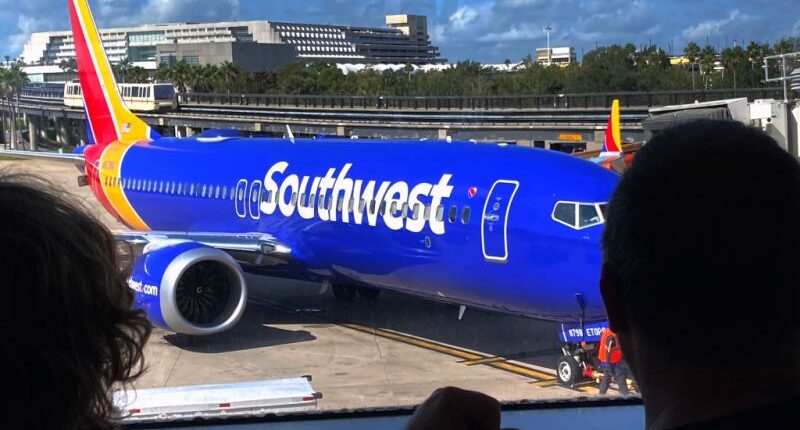Share this @internewscast.com

(NEXSTAR) – Starting later this month, Southwest Airlines will be enforcing a new policy for passengers who use motorized wheelchairs.
Starting from September 25, travelers using battery-powered wheelchairs or scooters must remove the lithium batteries from their devices before boarding and carry the batteries separately onto the aircraft. Additionally, batteries exceeding 300 watt hours (Wh) will be prohibited, but passengers with larger batteries have until January 11 to meet this particular requirement.
Dave Hunt, the vice president of safety and security at Southwest, said the new policy was adopted to “enhance safety” for passengers and crew.
“Lithium batteries are one of the prevalent causes of smoke and fire incidents on planes,” Hunt informed staff last week in a message shared with Nexstar by Southwest. “Although these occurrences are infrequent, immediate access and visibility are essential for ensuring everyone’s safety on board. By taking preventive measures now, Southwest will be among the pioneering U.S. airlines to implement these stricter standards.”
Southwest will not be treating the batteries themselves as carry-on luggage or a personal item, according to the airline.
The announcement comes a few months after Southwest banned the use of portable charging devices in overhead compartments or closed bags.
This policy was introduced following numerous incidents involving excessive heat, smoke, or fire due to lithium battery chargers. (As of September 15, the FAA reported 55 confirmed lithium battery-related “events” on U.S. flights in 2025, though none were linked to wheelchairs or mobility scooters. An FAA representative was not readily available to address incidents specifically linked to mobility devices.)
Southwest plans to start notifying passengers about the new battery policy in mid-September, explaining “what to expect at the airport and on board.”
“We understand how crucial mobility devices are for many of our Customers, and this update aims to prioritize safety without creating undue travel hurdles,” stated Hunt in the message. “While this change affects fewer than 0.1% of our Customers, we are dedicated to supporting each individual impacted.”












